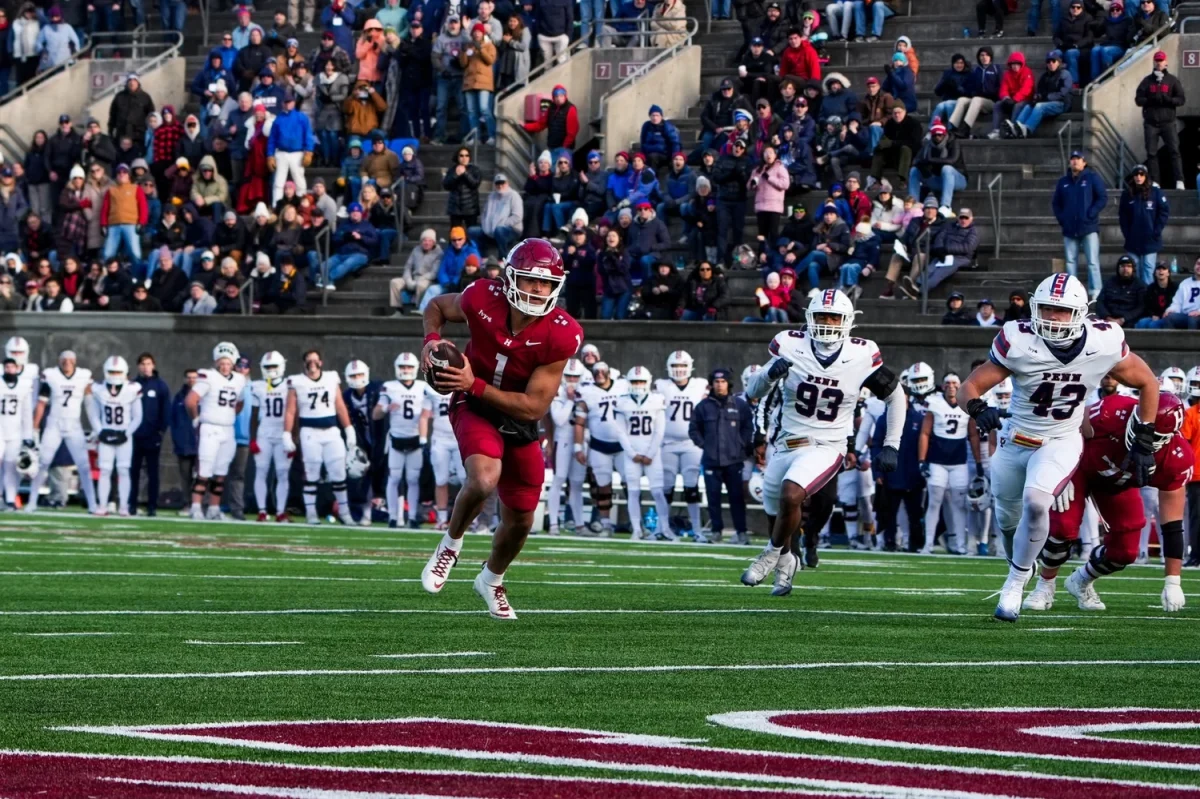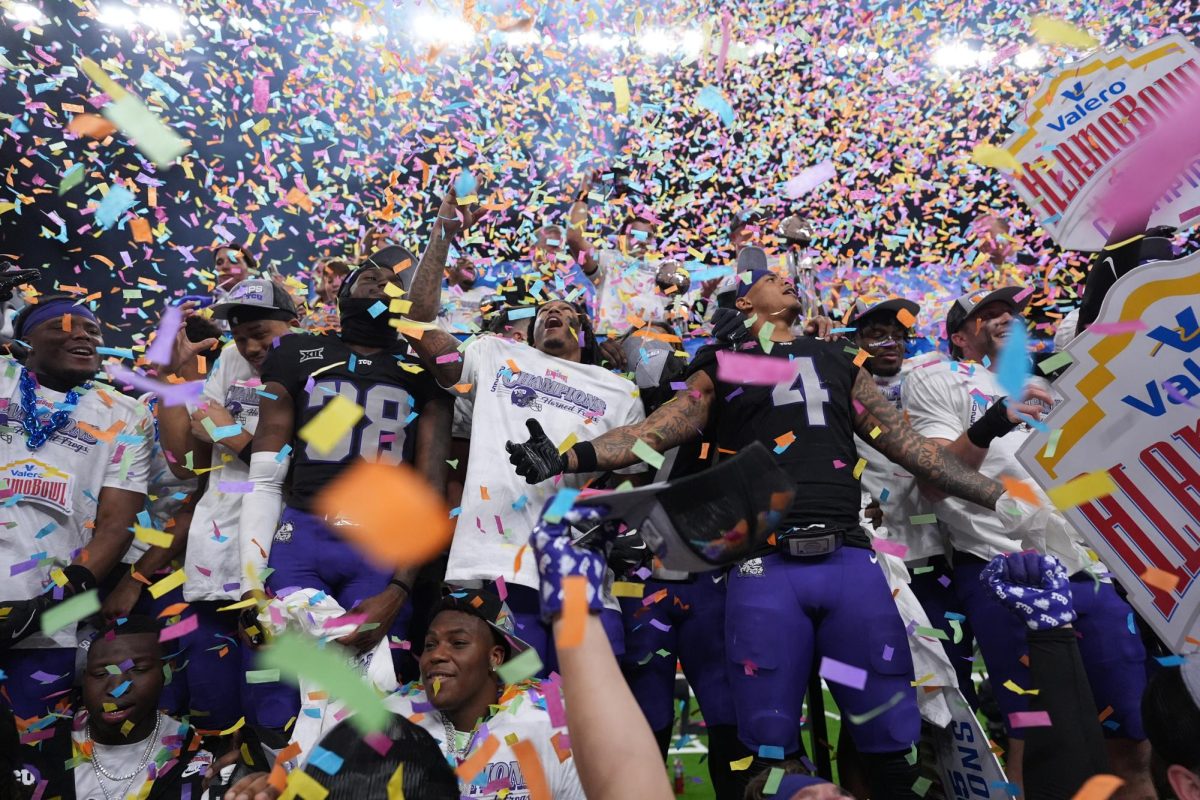As TCU sets up for the 12th bowl game in the Gary Patterson era, the team faces a Michigan State team with a similar defensive, “win-by-one” mindset.
The key to winning the Buffalo Wild Wings Bowl will be finding a way to score. In a battle of top 20 defenses, the game may be the lowest scoring bowl game of the season. In fact, most betting odds have the over/under at 40 points, the lowest of any bowl game this season.
The defenses of the two teams are tenacious. Michigan State finished the regular season by leading the Big Ten in defense, finishing fourth in overall defense and 10th in scoring defense, allowing only 16 points per game.
In contrast, TCU led the Big 12 in total defense and is 18th in the nation in total defense. The Horned Frogs finished 35th in the nation in scoring defense, allowing only 23 points per game.
In a game of defensive battles and offensive struggles, here is how either team can find a way to victory:
How Michigan State can win
For Michigan State, a win will not happen without a strong running game and constant pressure on TCU’s passing offense.
Offensively, the Spartans biggest asset is Le’Veon Bell, a 6 foot 2, 244-pound running back who had the second-most rushing yards in the Big Ten and seventh-most in the NCAA.
The best preparation for the Spartans offense is to approach the game as Oklahoma State did against TCU in October, when OSU tailback Joseph Randle rushed for 126 yards against the Horned Frogs.
Although TCU’s defense held Randle to less than four yards per carry, Randle consistently found ways to wear down the Horned Frogs. His consistent running helped to set up trick plays and short passes to receivers like Charlie Moore, who was able to outrun TCU’s tired linebackers in the slot.
If Michigan State executes the way Oklahoma State did, the offense will score, leaving the defense to do what it has done best all season – limit the rushing game while keeping opposing yards to a minimum.
Just as the Spartans offense must wear down the Horned Frogs through the ground game, the defense must get pressure on TCU quarterback Trevone Boykin.
A redshirt freshman, Boykin hasn’t shown a consistent form of play. Patterson has noted before in the season that Boykin’s first year as a starter has come with growing pains.
Patterson has spoken before about how he desires Boykin to “manage games better” and has said that Boykin has endured a long season to see improvement as a freshman. Patterson, when assessing Boykin throughout the year, said, "I don't know," citing that Boykin is a freshman who changes on a weekly basis.
What is known, however, is how Boykin will struggle when pressure is on him. Kansas State and Oklahoma State did excellent jobs in covering Boykin and forcing him to make bad plays. If a running game cannot get Boykin a favorable third down situation, quarterback pressure will leave the TCU offense with poor conversion numbers.
That defensive presense will be necessary for Michigan State to win. If Michigan State can generate enough pressure on the TCU offense and use Bell in a setting similar to how Oklahoma State wore down TCU, the Spartans will find a win.
How TCU can win
For TCU, the best way to find a win is to take an approach similar to the Rose Bowl preparations against Wisconsin — by preparing to stack the box and contain the running game by bending but not breaking.
Defensively, the Horned Frogs have an easier task of preparing for a Big Ten running game against the Spartans than they did the Badgers in 2010. Instead of facing multiple threats, such as the physical John Clay, the speedy James White and the Heisman hopeful Montee Ball, TCU will face one running threat in MSU's Le'Veon Bell.
Granted, Bell is still a force to be dealt with. After running for 1,648 yards and 11 touchdowns in the regular season, the massive junior has been touted as a possible draft pick if he declares for the draft and also has a potential Heisman candidate if he returns to East Lansing next season for his senior year.
The Horned Frogs defense needs to shut down the Michigan State running game similarly to the Texas game, where the Longhorns ran for a total of 86 yards — an average carry of 2.6 yards.
Just like how his performance changed the makeup of the TCU line on Thanksgiving against UT, the presense of a healthy Stansly Maponga will once again assist the Horned Frogs in providing running game pressure. With the All-Big 12 selection paired with the Big 12 Freshman of the Year Devonte Fields on the defensive line, the Spartans will have their hands full in protecting their offense.
On the linebackers and secondary standpoint, size and tackling will be a larger factor than speed. Kenny Cain and either Joel Hasley or Marcus Mallett will primarily clog the line and stack the box and there is a possibility of seeing Sam Carter on a blitz package often. Between All-American Jason Verrett and safeties Elisha Olabode and Chris Hackett, TCU's secondary should be able to defend against Michigan State's passing game, which averages 218 years a game.
With an average of 20 points per game, the Spartans rank 109th in the nation in scoring. Because of this, TCU will also need to find ways to score against the 4th best defense in the nation.
Led in part by linebacker Max Bulough and defensive end William Gholston, the Michigan State defense has 75 tackles-for-losses and allows only 273.25 yards a game. Against such a solid defense, TCU needs to give Boykin enough protection to find a way to get to one of his many capable receivers.
When given time in the pocket, Trevone Boykin gets big passes completed, as seen in his games against Texas Tech and West Virginia. If the offensive line collapses, such as in games against Oklahoma State and Oklahoma, the Horned Frogs turn to more predictable play calling, involving many zone-read and option plays. If the offensive line can’t give the offense enough time, the Horned Frogs will face many 2nd and 9 or 3rd and 8 situations, where Boykin will be forced to find a receiver, likely under a Michigan State blitz.
Although Michigan State comes from a heavy running conference in the Big Ten, TCU will need to find production out of Matthew Tucker and B.J. Catalon to at best, wear down the Spartan defense, or at worst, distract the defense. If a running game can be established, Boykin will have the ability to pull off a play-action pass or even pull a trick play in a key situation, such as Brandon Carter’s pass to Corey Fuller against West Virginia.
Author Prediction
This game will not be a high scoring affair and will be a battle between two very defensively minded coaches. With the lessons learned in Stillwater after the 36-14 loss to Oklahoma State, Gary Patterson finds a way to effectively use his linebackers and his healthier defensive line to limit Le’Veon Bell.
Bell will still score at least one touchdown late in the game after the MSU offensive line creates a big enough hole for him to make a big play. However, the play will not give the Spartans enough momentum to win the game.
Special teams play will be a big factor for TCU, as Jaden Oberkrom will likely attempt a number of field goals. The offensive line will have too much trouble trying to stop the rush, leaving few drives or touchdowns for the Horned Frogs offense. The team will find ways to get Oberkrom attempting 30 to 45-yard field goals, which Oberkrom will make.
TCU wins its eighth bowl game under Patterson, 12-7.




